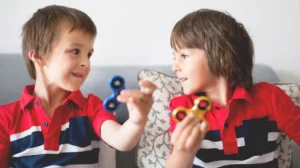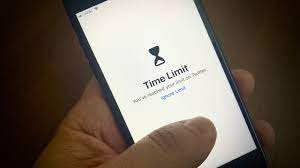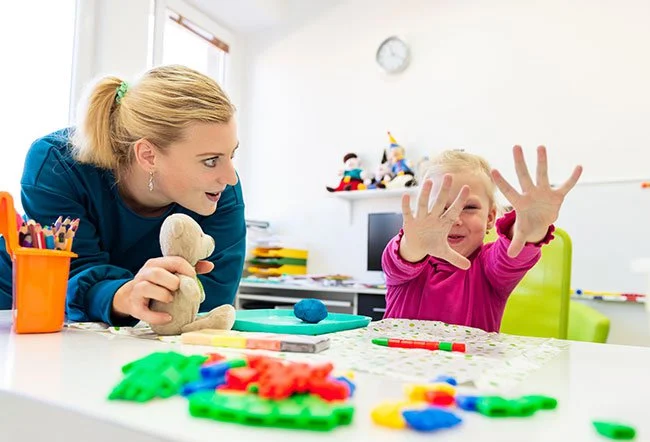Raising a child with ADHD can be difficult. There are many different strategies that you can use to help your child succeed. In this blog post, we will discuss 10 of the most effective strategies for parenting a child with ADHD. We will also provide some helpful strategies for parents. Let’s get started!
Contents
- 1 What Is ADHD?
- 2 What Are Some ADHD Strategies For Parents?
- 2.1 Maintain a positive attitude
- 2.2 Keep things in perspective
- 2.3 Encourage your child’s positive behavior
- 2.4 Structure your child’s environment
- 2.5 Set rules and consequences
- 2.6 Create a daily routine
- 2.7 Encourage physical activity
- 2.8 Limit screen time
- 2.9 Make sure your child is getting enough sleep
- 2.10 Teach your child self-regulation skills
- 3 What Things Parents Should Avoid With ADHD Children?
- 4 Conclusion
What Is ADHD?
 ADHD is a mental disorder that is characterized by problems with focus, hyperactivity, and impulsiveness. It is a condition that is often first diagnosed in childhood and can persist into adulthood. There are three types of ADHD: inattentive type, hyperactive-impulsive type, and combined type.
ADHD is a mental disorder that is characterized by problems with focus, hyperactivity, and impulsiveness. It is a condition that is often first diagnosed in childhood and can persist into adulthood. There are three types of ADHD: inattentive type, hyperactive-impulsive type, and combined type.
Most people with ADHD have problems with all three types of symptoms, but one type may be more predominant than the others. For example, a child with the inattentive type of ADHD may be easily distracted and have difficulty paying attention. A child with the hyperactive-impulsive type may be constantly moving and have trouble sitting still. And a child with the combined type will have a combination of both inattentive and hyperactive-impulsive symptoms.
If your child is showing signs of ADHD, it’s important to seek professional help. A diagnosis can be made by a psychiatrist, psychologist, or pediatrician. Once your child has been diagnosed with ADHD, there are many treatment options available. ADHD strategies for parents can be extremely helpful if someone is implementing these tips carefully.
What Are Some ADHD Strategies For Parents?
There are many ADHD strategies for parents that can use to help their children with ADHD. Here are 10 of the most effective:
Maintain a positive attitude
It is important for parents to maintain a positive attitude when parenting a child with ADHD. This positive attitude will help the child feel good about themselves and encourage them to stay on track. A positive attitude can also help the child to feel confident and motivated. Because children with ADHD can be easily discouraged, it is important for parents to always remain positive.
Keep things in perspective
This is probably the most important thing you can do as a parent of a child with ADHD. It’s easy to get caught up in the day-to-day challenges and forget that your child is just a kid, not a label. Every child has unique strengths and weaknesses, and every parent has different parenting styles. The key is to find what works best for you and your child.
Encourage your child’s positive behavior
Sometimes the negative behaviors of children with ADHD can overshadow the good. Make sure to point out and praise your child when they display positive behaviors, such as completing a task or following directions. This positive reinforcement will help encourage your child to continue behaving in a desirable manner. It is also important to avoid reacting too harshly to your child’s negative behaviors. This can only serve to further upset and discourage them.
Structure your child’s environment
 As the environment impacts behavior for anyone, it has an especially strong effect on children with ADHD. A well-organized and structured environment can help your child feel safe and secure while reducing the likelihood of impulsive behavior. Some parents find it helpful to use visual cues to help their child with ADHD stay on track. It is also important to establish routines and stick to them as much as possible.
As the environment impacts behavior for anyone, it has an especially strong effect on children with ADHD. A well-organized and structured environment can help your child feel safe and secure while reducing the likelihood of impulsive behavior. Some parents find it helpful to use visual cues to help their child with ADHD stay on track. It is also important to establish routines and stick to them as much as possible.
Set rules and consequences
It is important to set rules and consequences for your child’s behavior. Be sure to be consistent with the rules and consequences. Because if you are not, your child will quickly learn that they can get away with certain behaviors. For instance, if you allow your child to watch television for two hours on weekdays, do not let them watch it for four hours on weekends.
Create a daily routine
While it’s important to be flexible, kids with ADHD often benefit from having a set daily routine. Help your child by creating a schedule of activities for each day, including time for schoolwork, homework, outdoor play, and indoor activities. Write down the schedule and post it where your child can see it. In fact, with a daily routine in place, consider using a visual schedule to help your child see what comes next and better understand the expectations.
Encourage physical activity
This is one of the most important things you can do for a child with ADHD. Exercise helps burn off excess energy and improve focus. A daily routine of physical activity can make a big difference in symptoms. Also, it is important to encourage outdoor activities, as natural light can also help improve focus. And, finally, make sure to avoid sugary drinks and snacks, as they can actually make symptoms worse.
Limit screen time
 Children with ADHD are often more sensitive to the effects of screen time than other kids. Too much screen time can make symptoms worse and interfere with healthy development. The researchers recommend no more than one hour per day of screen time for children over age 2. For this you can try to:
Children with ADHD are often more sensitive to the effects of screen time than other kids. Too much screen time can make symptoms worse and interfere with healthy development. The researchers recommend no more than one hour per day of screen time for children over age 2. For this you can try to:
- Create screen-free zones at home, such as during dinner or family time.
- Encourage outdoor activities.
- Lead by example and limit your own screen time.
Make sure your child is getting enough sleep
Sleep is essential for all children, but it’s especially important for kids with ADHD. A good night’s sleep can help improve symptoms and make your child feel better overall. Make sure your child is getting between eight and 10 hours of sleep each night. You can try setting a bedtime routine to help them wind down before sleep and make sure they’re not watching television or using electronics in the hour leading up to bedtime.
Teach your child self-regulation skills
Finally, it is important to teach your child self-regulation skills. This means helping them to understand and control their emotions and behaviors. Because it might be difficult for you to take care of your child all the time, it is important to equip your child with the skills they need to take care of themselves.
There are many ways to do this, but one way is to use a token system. Every time your child does something that you want them to do (e.g., finish their homework), they get a point. They can then trade in these points for things that they want (e.g., extra screen time).
Not only will this help to train your child’s brain, but it will also give them a sense of pride and accomplishment. And let’s be honest, we could all use a little more of that in our lives!
So, all in all, these are the top 10 ADHD strategies for parents. We hope that you will find them helpful! It is also important for you to remember that you are not alone. There are many resources out there to help you, so please do not hesitate to reach out for help if you need it.
What Things Parents Should Avoid With ADHD Children?
 While taking care of a kid with ADHD, parents need to avoid a few things that might have an adverse effect on the children. Here are a few things:
While taking care of a kid with ADHD, parents need to avoid a few things that might have an adverse effect on the children. Here are a few things:
- Yelling: This might seem like an obvious one, but it’s important to remember in the heat of the moment. When kids with ADHD feel like they’re being constantly berated, it can further increase their feeling of failure and cause them to act out more.
- Withholding affection: This can be a tough one, especially when your child is acting out. But it’s important to remember that your child is still your child, and they need your love and support.
- Making everything about ADHD: It’s important to remember that your child is more than their diagnosis. Yes, ADHD can be a big part of their life, but it’s not the only thing that defines them.
- Comparing your child to others: This is something that all parents should avoid, but it’s especially important for parents of kids with ADHD. Comparisons can make your child feel like they’re not good enough and cause them to act out more.
- Blaming yourself: It’s easy to blame yourself when your child is struggling, but it’s important to remember that you’re not responsible for their ADHD. It’s not your fault, and there’s nothing you could have done to prevent it.
- Ignoring the good: It’s easy to focus on the negative when your child is acting out, but it’s important to remember the good moments too. Acknowledge and praise your child when they’re behaving well, and they’re more likely to continue that behavior.
- Giving up: Parenting a child with ADHD can be challenging, but it’s important to remember that you’re not alone. There are plenty of resources and support groups available, so don’t give up.
These are some of the things parents need to avoid while taking care of children with ADHD. Parents should also try to be understanding and supportive towards their children to help them deal with their condition. It is also important to educate yourself about ADHD so that you can better understand your child and provide them with the help they need.
With the right tips can careful parenting, children with ADHD can grow up to be happy and successful adults.
Conclusion
In conclusion, ADHD strategies for parents can be very helpful in dealing with their children’s condition. It is important to be patient, and understanding and have a positive attitude toward parenting a child with ADHD. With the right strategies in place, parents can help their children manage their condition and lead happy, fulfilled lives.
So if you are a parent of a child with ADHD, don’t despair, there is hope. Implementing some or all of the strategies discussed in this article can make a big difference in your child’s life – and yours too!
For more information and guidance, do not forget to speak with a healthcare professional at Therapy Mantra. The earlier you seek help, the better it is for your child’s development. Contact us today to learn more about our services. You can also book an online therapy session or download our free Android or iOS app.


